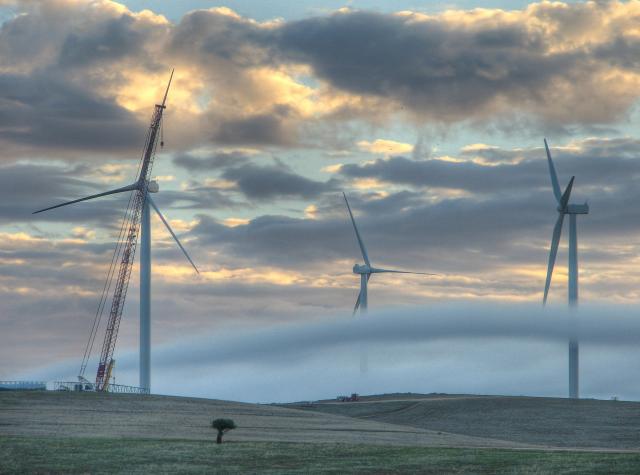| ||
|
There are valid concerns about wind power developments, but many of the objections are either unrelated to valid concerns or are out of all proportion to the valid concerns.
Why do people oppose wind farms? My opinion
Health: Between about 2010 and 2016 there was the irrational and unjustified fear that wind turbines caused illness in people who were living nearby. This myth was started overseas and was enthusiastically taken up in Australia by Sarah (ex Dr) Laurie who travelled around the country and overseas telling people that if a wind farm was built near them they should expect to become ill. Not surprisingly, the expectation lead to symptoms in many cases; due to the nocebo effect. The health fallacy seemed to have run its course by 2016.Visibility: A lot of people just don't want to have to look at nearby wind turbines or don't like the look of wind turbines anywhere. Of course there are places where most of us would not want to see a wind farm built.
Noise: Even though the sound levels are low, some people find the sound annoying. Others fear that a wind farm that they've heard is to be built nearby will be noisy because that's what many of those opposed to wind power are 'shouting from the roof tops'. I have made a point of visiting many wind farms; nearly all of those in South Australia and Victoria, most of those in NSW, and a few in WA. I have even camped out and slept beneath a number of turbines, I have slept in a cabin 850m from a wind farm on two nights and in an abandoned house near another wind farm, so that I could get first-hand experience. In every case I was not bothered by the sound and had a good night's sleep.
Attachment to a place: It is understandable that if someone has lived in an area for a long time, particularly a beautiful area, they will develop a feeling of attachment toward that place. They will have come to love that place the way it is, and not want to see nearby industrial development.
Property values: there may be justification for the claim that wind farms reduce property values if the nearest turbine is very close, say considerably less than 1km from a home, and property values may decline slightly and temporarily in response to the negativity that sometimes surrounds a proposed wind farm, but almost all the credible studies show no decline in the value of land near wind farms.
Simple pig-headedness: "I'm opposed to this and I'm going to get my way no matter what!"
Envy: "My neighbours are making money out of this, I'm missing out and I don't like it!"
Not in my back yard (NIMBY):
- "It's our rural landscape and we don't want to hand it over to the city colonisers."
- "I'm not opposed to wind farms, but they should be somewhere else."
|
|
How the 'arguments' used to oppose wind power differ from the actual objections
|
A couple of years ago I was sufficiently disgusted by the devious and dishonest objections being spread by some who opposed the proposed Ceres wind farm in South Australia's Yorke Peninsula that I set up a Facebook page in an attempt to start an open debate about the desirability of the project in regard to the region, the nation and the world.
Looking back at that time I now realise that I was naïve. I was hoping for an honest exchange of arguments for and against the project. While there were some valid objections, some questioning of the economics of wind power, the possible impact on aerial fire-fighting, some claims that wind farms were not appropriate in an agricultural area, what dominated the postings by those who opposed the project were ill-founded and unresearched claims about wind turbines being inefficient, unreliable, generating little electricity, "destroying my quality of life" and denying the reality of anthropogenic climate change.
I suppose what surprised me the most was that many of the postings by those opposed to the project either contained abuse, name-calling and insults or were nothing more than abuse, name-calling and insults.
Perhaps my greatest disappointment was in human nature. I had a higher opinion in the honesty, decency and rationality of the general population than was demonstrated by the people who were opposed to the proposed wind farm.
One of life's great mysteries to me is why it is, when climate change and the related problems is obviously going to do great harm to this world that I so love, so few people care enough to try to do anything about it.
